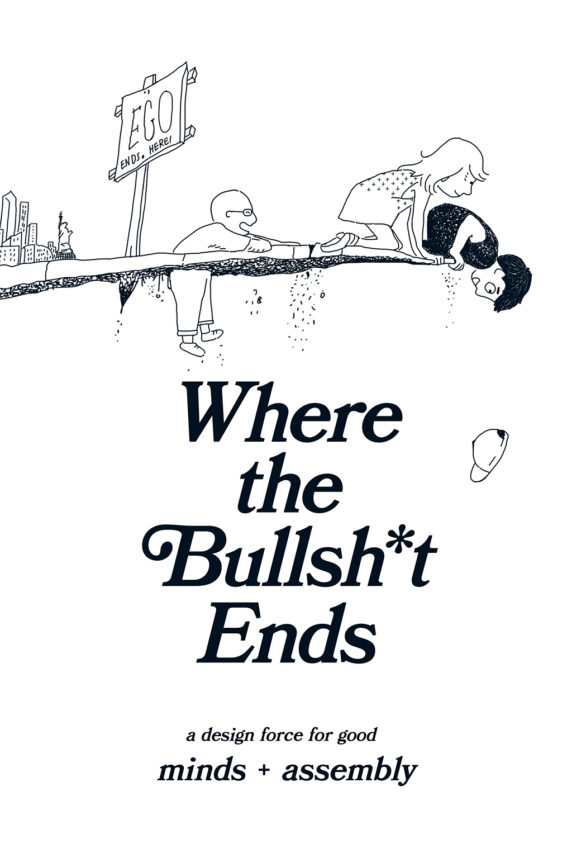Agency leaders love to talk about company culture — and, in particular, how their company culture trumps all other company cultures. That’s why it’s so refreshing, and even a bit jarring, when Minds + Assembly cofounder Ben Ingersoll passes up on an opportunity to rhapsodize about its importance.
“We’ve always said that we don’t have an agency culture that you need to fit into. It’s a culture that you come in and change for us,” he says.
That’s but one of the ways that M+A distinguishes itself from the myriad independent agencies that seek to trumpet their creative singularity. Another is the emphasis it puts on design and experience: Over the course of a conversation with cofounders Ingersoll, Joelle Friedland and Stephen Minasvand, one hears more about beauty and joy than about strategy and tactics.
“Our mission is to be a design force for good. We want to be the premium design-focused healthcare agency in the world,” Minasvand says.

M+A may not be for every client. A brand team leader at a top-10 pharma company once told Ingersoll, much to his (eventual) amusement, that “you guys are too creative for us.”
“And he was right,” Ingersoll acknowledges. “We do better with clients who want to pursue something of a higher order when it comes to design and thinking. They’re the ones who will get the most out of working with us.”
In 2021, converts to the cause included Galderma, which awarded its acne franchise, rosacea gel Mirvaso, and five other pieces of business to M+A. Kyowa Kirin, Enzyvant, Currax Pharmaceuticals and the One Love Foundation were the year’s other additions to a roster that includes Argenx, Takeda and Otsuka.
Not surprisingly, revenue rose with the client count. The agency enjoyed a 52% revenue bump, from 2020’s take of $29 million to 2021’s $44 million. Staff size grew accordingly, from 91 full-timers at the end of 2020 to 132 a year later.
M+A didn’t struggle with recruitment, as so many other agencies did. That’s likely because the company’s proposition to would-be employees is anything but cookie-cutter.
Points of differentiation include the agency’s Youni in-house education program (which emphasizes “life lessons, enlightenment and presence,” Minasvand says) and generous offerings such as the annual McConkey Scholarship. Named after legendary BASE jumper Shane McConkey, the program awards $10,000 to three M+A staffers hoping to overcome a challenge.
Non-winners get a pretty OK consolation prize in the form of a $1,000 annual allowance designed to encourage employees to “pursue anything that enriches them,” Friedland says.
Taken together, this is why M+A has become a prime destination for “people who are multitalented, eclectic and weird in everything they offer … All we ask is, ‘Be kind, be fearless and be you,’” Minasvand says.
It should probably go without saying, but don’t expect M+A to change the way it goes about its business. “We’re all about taking educated risks,” Minasvand continues. “We call it ‘BASE jumping into the unknown.’”
. . .
Work from outside pharma you admire…
Envy is not a particularly attractive quality in an agency. But in the case of AKQA, which seems to knock out incredibly inventive ideas at an astonishing rate, we can’t help it. Take its work for clothing retailer H&M, designed to call attention to the problem of throwaway clothing. The solution was to create “the world’s first in-store garment-to-garment recycling system.” It’s slick, tech-forward, super-smart, beautifully executed and fun — all qualities that we admire. — Friedland
From the June 01, 2022 Issue of MM+M - Medical Marketing and Media








